|
In the fourth interview in our blog series 'Meet the Icelanders', we speak to writer Emil Hjörvar Petersen. Emil is very well known in Iceland, and has had huge success with his unique mix of crime-horror and speculative fiction that subverts the traditional crime-fiction genre, and sets him apart from his peers. We are thrilled that Emil will be making his Iceland Noir debut in November and hope to see his work published in English in the near future. Hello Emil! Please tell us a little bit about yourself. I’m an Icelandic author. I grew up in Kópavogur, one of four siblings, and I had this crazy unrealistic dream of becoming a writer. I’ve always been fascinated by storytelling, myths and folklore, and how these universal phenomena at their core show us common human traits all around the world. For me, 'The Fantastic' is a tool to approach things from different perspectives, often surprising myself; I follow the sense of wonder. I tend to mix fantasy with realism, and I mix genres as well. I’ve written a post-apocalyptic fantasy trilogy, a crime-fantasy series and now crime-horror. Also, I’m writing an original screenplay for a TV-show. Sagafilm bought and will produce it. For more than a decade I’ve been one of several authors on a mission to write speculative fiction in Icelandic. Horror, fantasy and science fiction were practically non-existent in our small market, just as was with crime fiction at the turn of the century. We keep going and now I think it’s safe to say that Icelandic speculative fiction is here to stay. Two years ago, after living in Sweden for a decade, I moved back to Kópavogur with my wife and two children. These days, I’m embracing my hometown as a setting for stories, namely horror! You have published eight novels, and have a new crime-horror book coming out this year as a Storytel Original - Can you tell us a little bit about it? As with other speculative genres, horror was largely neglected in Iceland. Which is surprising, since our folklore tends to be quite horrific, weird and gruesome. You might say I’m in a horror-phase right now, finding ways to trigger fear and exploring the psychological aspect of it. Last year, Storytel published two horror novels by me. The first one is a grotesque folk horror (Ó, Karítas), the second a historical ghost story (Hælið or The Sanatorium). What I try to do is to bring horror tropes to an Icelandic setting. Now I’m merging crime with horror. The crime-horror novel is about a detective who is put to a case which is eerily similar to a traumatic event from his childhood. He’s determined to solve it and, maybe, he will finally find out what happened in the past. But he starts to experience very unsettling things whilst investigating. I really wish I could say more. I’m very excited to unveil it when the time comes this autumn! Your previous novels have been in the crime-fantasy genre. Can you tell English readers about them? My first speculative work was a post-apocalyptic fantasy trilogy called Saga eftirlifenda, a tale about the Norse gods who survived Ragnarök, and their struggles and voyages in a world they lost control of. It was really well received and exciting things are brewing related to the trilogy. When I was almost finished with Saga eftirlifenda, a question sprung to my mind: Why has no one written an Icelandic crime-fantasy? We have all these mystical folktales, there are modern mediums who are hired, for real, to investigate when certain things go wrong, for example when roads are being built and construction equipment fails. The mediums try to see if hidden creatures are living in rocks that are about to be removed, and roads have been built around alleged hidden settlements. Some Icelanders are superstitious, and even though most of them don’t believe, I think most wish there were elves and hidden people living in rocks and hills. So, I decided to mix Nordic noir with urban fantasy and write a crime-story in an alternate contemporary reality, where the hidden world really exists. I wrote Víghólar (Crimson Hills), the first novel in a series I like to call The Shroud. It was awarded and Sagafilm is developing a TV-show. Bjartur & Veröld published the novel, and also two sequels, Sólhvörf (Solstice) and Nornasveimur (Witchfires). The Shroud follows Bergrún Búadóttir, a broke medium who is sometimes hired by the police to investigate supernatural occurrences, and now the case she gets involved in is much more serious than before. Gradually Bergrún becomes a medium-detective. She’s divorced and consumed by her work. Brá Bjarkadóttir is Bergrún’s restless daughter who lives with her father’s family. Her unstable powers are manifesting and as the story moves forward, Brá’s role grows; it becomes clear that she has a specific destiny. In each book there is a new case and a new theme, related to specific creatures and mysteries from Icelandic folklore. The series is correlated with the dramatic story of mother and daughter: their struggles, their relationship, their flaws, hopes and dreams. I have planned two more books in The Shroud, where the story of Bergrún and Brá is concluded. But I’ve also started writing spin-offs in this world. One has been published in English, it’s a long short story about recurring extra characters in the series: the cryptozoologist Aldís and her dwarven assistant. It’s called “The Cryptid” and it was published by Head of Zeus in the anthology The Best of World SF last year. The paperback version was published days ago. Iceland is famous for its crime-fiction. What do you think it is about living in Iceland that brings out so much creativity? Creativity surely is brought out everywhere else, in different ways, but as for the style and the atmosphere of Icelandic literature, one can’t ignore the effect the landscape has on us. The magnificent mountains always there on the horizon, the cold sea surrounding us, the vastness, all the uncanny and unique places. We’re so few but we have so much space; untouched nature that both nurtures and screams at us. And then there’s the drastic shift of light and dark. The claustrophobic winter dark versus the everlooming summer light. The dark is both cozy and creepy, the midnight sun never wants us to leave the party. This messes with our heads. I guess many of us try to shift that condition to creativity. Can you tell us a little bit about the crime-fiction writing community in Iceland? I’ve been more involved in the speculative fiction community. I’m relatively new to the crime-fiction community but from what I’ve gathered, it’s especially inviting. The crime authors are all very nice and helpful people, and there seems to be this collective thinking: we’re in this together. As it’s with the speculative community. As it’s supposed to be! Who are you most looking forward to seeing at the festival? From the authors that have been announced, I’m really looking forward to seeing and listening to Bernandine Evaristo. Her career is fascinating! In general, I look forward to absorbing all the panel discussions and seeing how different authors approach the crime genre. Like Sjón, one of my favorite authors. Usually he has very interesting takes on literature. If our visitors do one thing in Reykjavík, what should that be? Here’s a good plan in downtown Reykjavík: a burger and a beer at Ræktin on Laugavegur (one of the best burgers I’ve had), walk the street afterwards, visit the old bookshop Mál & Menning which is now a cozy live venue, have a coffee there, maybe there will be live music or poetry reading, walk down to Austurstræti, browse at the bookshop Eymundsson, and then go to Skúli Craft Bar near Ingólfstorg. They have a large selection of Icelandic craft beer on draft and you can taste before deciding. Emil will be appearing atIceland Noir on Thursday the 17th of November.
0 Comments
Welcome to the third interview in our blog series 'Meet the Icelanders'. This week we spoke to one of the most exciting Icelandic writers to have appeared on the literary scene over the last few years, María Elísabet Bragadóttir. María will be appearing at Iceland Noir for the second time this year and although her work has not yet been published in English, we very much hope that it soon will be as it is so universal in its appeal. María's first book is the short story collection, Herbergi í öðrum heimi (A Room in Another World), was published in Iceland in 2020 to huge critical and popular acclaim with readers of all ages captured by her unique writing style and immersive storytelling. She is currently working on her second book, a novel. Hello María Elísabet! Please tell us a little bit about yourself. I am an Icelandic writer living in downtown Reykjavík where I grew-up. My first book Herbergi í öðrum heimi (A Room in Another World) was published in 2020. I am a graduate in philosophy from the University of Iceland. I always wanted to do something creative but felt like going to art school was too risky. For some time I had been thinking of philosophy and after hearing someone say that studying philosophy meant spending days reading very slowly, it stuck with me. So I signed-up for it and it turned out to be a good decision which has benefitted my writing. When I was 21 I got lucky when someone referred me to the editor of a daily newspaper who offered me the chance to write a regular column after seeing my posts on Twitter. It was a huge stepping stone having my thoughts published for a national audience and to have a deadline for something creative every other week. I was a bookish kid and I still think of myself first and foremost as a reader and subsequently as a writer. I wanted to become a writer from an early age, but also to be a painter and an actress and now I can see how it all derives from the same instinct. It means using one‘s imagination to make up characters, put them on a stage and give them a voice, let them talk to one another – it is like drawing pictures with words, deciding on details, the colour scheme, the atmosphere and the frame. I was lucky enough to have grown-ups around me that took my aspirations seriously and had genuine interest in my stories, so I always felt like I had something of great importance to bring to the table. It has always been my impulse to write, and I have been driven by this notion that if I don't write about it, someone might decide that it does not matter. Your first collection of short stories, Herbergi í öðrum heimi (A Room in Another World), has been a huge success in Iceland and received rave reviews. Can you tell English readers a bit about it? The short story is one of my favourite mediums. I love reading short stories and I like the challenge it brings for a writer, to only have a few pages to satisfy the readers‘ longing for an interesting story. I like it when short stories do not resolve but rather impose something, when they are suggestive. I think it is difficult to wrap the contents of the book up in a few words since it is a collection of stories and not a novel, but if there is any "thread" throughout the book it might be relationships, and the desire of most individuals for intimacy and a sense of belonging. My characters are mainly young people in Reykjavík. Some of the stories revolve around the notion of the self and self-perception; the partly false narrative we often construct for ourselves. I also like writing from a child's perspective. There are two stories in the collection about children, reflecting on the thin line between innocence and cruelty and examining the gap between children and adults. I loved writing my debut. I had so much fun typing on my ancient laptop (even though it crashed a few times, which was terrifying) and I hope it reads that way as well. The book was great company for me when it was still just a Word document. Iceland is famous for its literary culture. What do you think it is about living in Iceland that brings out so much creativity? A few things come to my mind . . . Storytelling is, in my mind, a matter of survival. Maybe being stuck on an island with bad weather conditions and an extremely small population forces one to make up an alternative world and inhabit that instead. It is true however that reading and writing books is an inherent part of Icelanders‘ national identity. "The Christmas Book Flood" (Jólabókaflóðið) is a long-standing tradition of buying books for gifts for Christmas. It might sound like something invented for public relations purposes just a few years ago, but it is not. Christmas in Iceland is all about books for many people. The social safety net most Icelanders have in their lives is worth mentioning as well. I don‘t think writing a book is just a matter of hard work, inspiration and creative mind, it is also a question of privilege. There are many great authors whom we will never get to know simply because they will never get any platform, or the chance to take a financial risk. Even though Iceland is far from being the egalitarian utopia that it is so often considered to be, Icelanders are privileged to live in relatively affluent country where you know that you will most likely always have food and shelter, health care and education. What are you working on at the moment? I always have a few literary projects that I am working on simultaneously, I find it often helps. The moment I get sick of living inside one story, I open another document which can be energising and inspiring. Also I find it important for the editing process, to put something aside and let time pass before picking it up again even though I am often eager to finish it. It is necessary to distance yourself from the prose to gain perspective. One of the things I find difficult with writing is the need to be patient, I am an impatient person. Currently I am working on a novel but I also have a few other projects going on. This eases my mind. Who are you most looking forward to seeing at the festival? I have attended the festival once before (2021) and it was amazing. Everyone was super-friendly and the atmosphere was laid back but people were also bursting with the need for face to face interaction after almost two years of social distancing. What I love the most about Iceland Noir is the diversity of the festival. The line-up this year (2022) is great. I am so excited to see both Bernardine Evaristo and of course the living legend, Marian Keyes. I am also looking forward to seeing familiar Icelandic faces, and getting to know authors I don‘t know anything about yet. If our visitors do one thing in Reykjavík, what should that be? Go to the pool. It is the absolute best thing about living in Iceland. Forget about the Blue Lagoon. Doesn't matter if there is snow blizzard or a hail storm. Just go to the nearest public swimming pool and sit down in a hot tub. The best part is of course that you are not allowed to bring your phone with you so people are forced to stay with their thoughts (people like me, with severe phone addiction, need to do this). I go to the pool nearly everyday and I prefer to go alone. It is good for your mental health and personally I find that it often helps with writers block. Even better than a long walk, in my opinion. See María at Iceland Noir 2022. Last few tickets on sale HERE.
Welcome to the second interview in our blog series 'Meet the Icelanders', where we introduce some of the Icelandic authors appearing at Iceland Noir this year, that have not yet had their work translated into English. Sverrir Norland is an Icelandic author, translator, publisher, and public speaker. His latest book is Stríð og kliður (War & Noise, 2021), a personal essay on nature, technology, and the human imagination, was met with great acclaim in Iceland. Sverrir has also published two novels: Kvíðasnillingarnir (Masters of Anxiety, 2014) and Fyrir allra augum (In Plain Sight, 2016). He runs a small publishing house called AM forlag, and has translated, from both French and English, books by Maurice Sendak, Tomi Ungerer, Pénélope Bagieu, and Carson Ellis, among others, as well as making programs for radio and TV. Sverrir will be moderating the Trapped panel, with director and creator of the world-renowned TV show Baltasar Kormákur, and stars Ólafur Darri Ólafsson and Íris Tanja Flygenring. Get your tickets HERE. 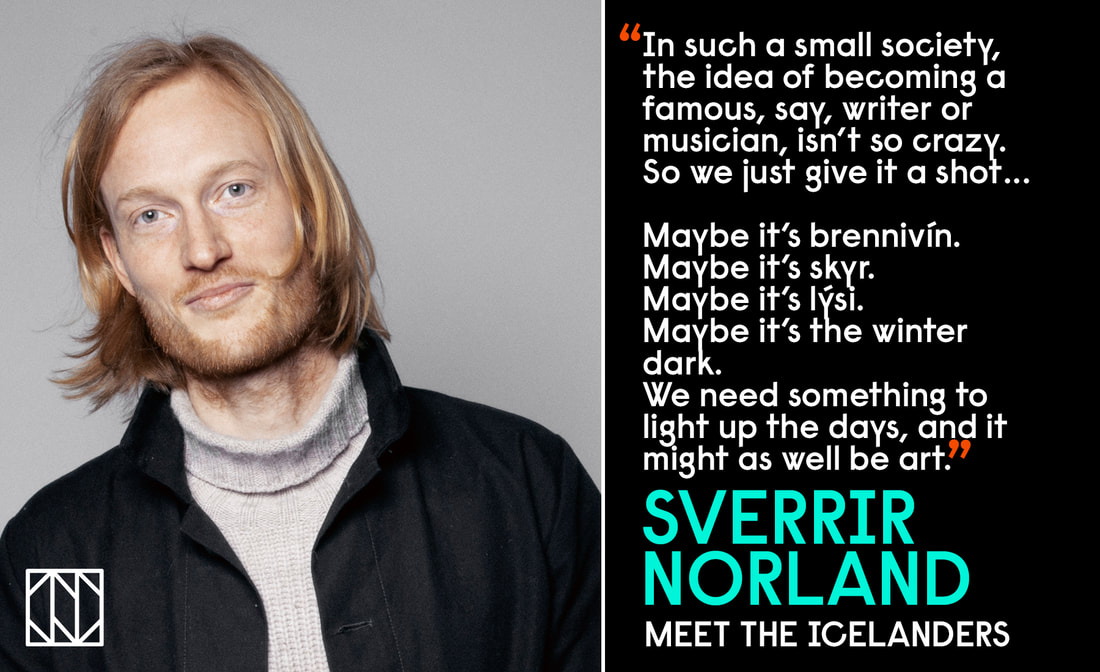 Hello Sverrir! Please tell us a little bit about yourself. I’m a writer (of both novels and non-fiction), but in the past few years I’ve also been doing radio, podcasting, TV, book criticism, scriptwriting, public speaking, event moderations, creative workshops, teaching, book and theatre translations, as well as running a small publishing house with my wife, Cerise (my job there also includes book deliveries, carrying boxes in the warehouse, writing copy etc.). A recent development is now pushing me towards acting (which I did a lot of in junior college – but not seriously since then!). So! What unites all these activities, I guess, is my love of ideas and storytelling. I also have two kids, which is a vital part of who I am. In our household we speak three languages: Icelandic, English, and French. For nearly I decade, I was based first in London, then in Paris, and finally in New York, but I’m happy to be back in my native city, Reykjavík. You have written two novels and, most recently, a collection of essays, Stríð og kliður (War and Noise, 2021). Can you tell us a little bit about it? War and Noise takes on huge issues of our times: climate and technology. I explore what effect the destruction of nature and the takeover of technology in every human sphere might be having on our imagination, our creativity. The response was so strong, it really touched me. I think part of the success of the book might be that I aimed for a more personal take on these issues, and I don’t pretend to offer any solutions. I’m generally not very interested in clear-cut answers, but I like asking questions. Your novels Kvíðasnillingarnir (Masters of Anxiety) and Fyrir allra augum (In Plain Sight) were hugely successful in Iceland - can you tell English readers a little bit about them?
My first novel, Masters of Anxiety, was actually first written in English, as The Year of Idleness, when I studied in London. My teachers urged me to keep writing in English, find agents etc – but I took the very sensible decision to focus on the Icelandic market. It’s a sort of bilungsroman that follows three childhood friends into their early adulthood. My second novel, In Plain Sight, is rather short, you can read it in one sitting, and it takes on themes like how a lot of us now cultivate digital alter-egos online that might not align very well with our physical real-world versions. In 2018 I also did something very fun: I published five very small books, in what I called a book bundle. The books were all roughly the size of a smartphone, so they could replace that little ubiquitous machine in your pocket. Three of the books were “novels of reasonable length”. I like short books – I often find that you can pack more into a short text than a long one . . . Iceland is famous for its literary culture. What do you think it is about living in Iceland that brings out so much creativity? In such a small society, the idea of becoming a famous, say, writer or musician, isn’t so crazy. So we just give it a shot . . . It’s also nice that you can reach out to pretty much anyone and get encouragement, tips, help. Maybe it’s brennivín. Maybe it’s skyr. Maybe it’s lýsi (fish-liver oil). Maybe it’s the winter dark. We need something to light up the days, and it might as well be art. What are you working on at the moment? So many things. I’m writing a new novel, a short one –and I have several others that I then want to get to . . . I’m also writing a novel with another author, a thriller set in our times and the past. Then I’m co-writing a TV show that I’ll also star in – a mix between a comedy and a documentary. We’ll be exploring modern masculinity. At the moment, I’m also putting the final touches to a translation from French of a play by Florian Zeller that will be staged in the fall at Borgarleikhúsið, the city theatre. Who are you most looking forward to seeing at the festival? Well, so many interesting names this year: Bernardine Evaristo, Paula Hawkins, Richard Osman, Marian Keyes . . . Just to name a few. Then it’s always great fun getting to hang out with all the Icelandic authors. Last year’s festival was one of the best literary festivals I’ve ever attended. Such nice atmosphere, it really was magical. Can’t wait for this one. If our visitors do one thing in Reykjavík, what should that be? What I mostly love about the neighbourhood where I now live (Hlíðarnar, where I grew up), is that I’m five minutes away from a rather big (man-made) forest. I love walking there, and I love running through it and then by the sea (Nauthólsvík, Ægissíða). If you want to go further, the area by Grótta is beautiful, lots of bird life. All great places to walk. After, you could do worse than go for a nice coffee and pastry at either Coocoo’s Nest, in Grandi, Hygge, a very nice café in a nearby hotel, or a local favorite, Kaffihús Vesturbæjar (the locals call it Kaffi Vest). Find Sverrir on Instagram and Twitter Welcome to our new blog series, 'Meet the Icelanders'. Here we will introduce some of the wonderful Icelandic authors appearing at Iceland Noir this year, that have not yet had their work translated into English. Kamilla Einarsdóttir was born and raised in Reykjavík. She is the author of two novels, and was nominated for the prestigious Icelandic Literary prize in 2021. Currently working as a librarian, but with a varied career history which includes a strip club and the Post Office, Kamilla made her Iceland Noir debut in 2021 and we are thrilled that she will be appearing again this year. We caught up with Kamilla to ask her about her writing, what she is most looking forward to at this year's festival, and of course those cartwheels that we have heard so much about . . . 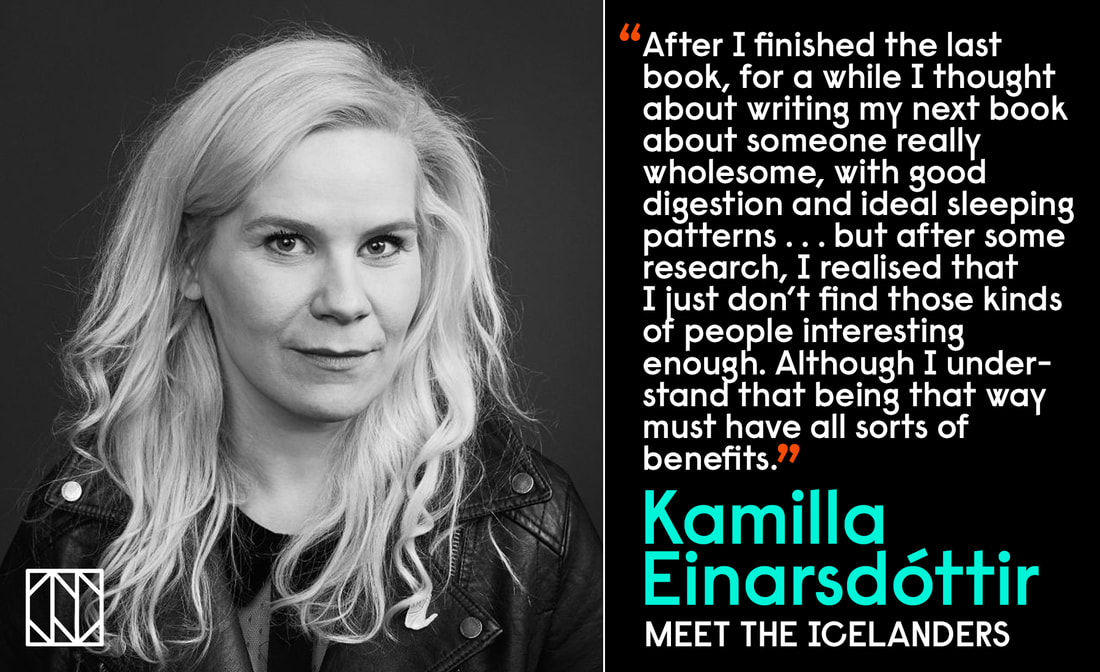 Hello Kamilla! Please tell us a little bit about yourself. I’ve always felt like I have the shittiest CV on earth. I’ve never finished any degree in anything, although I’ve started studying all kind of things at university . . . Japanese, education and history among others. I've loved it all but never felt any reason to end my studies with a graduation. My jobs have all been low-paying, something I go after because of the stories they give me. That is how I’ve ended up working at the Post Office, in libraries and at strip joints. Not as a dancer, but I picked-up some moves that I’m always willing to show after about a dozen beers. Currently I work at the National Library and I love it. I’m always surrounded by books and people that are passionate about them. Sometimes when I’m feeling low, and I start thinking I’ll never write something interesting again, I just take a little walk around the library. I see all of the books that have been written on subjects like 'how food should be frozen properly', and I am reminded that I can always write about something just a little bit more interesting than that. Your most recent novel, Tilfinningar eru fyrir aumingja (Only Suckers do Emotion) was nominated for the Icelandic Prize for Literature in 2021. Congratulations! Can you tell English readers a little bit about it, and what you write about? I never meant to write a book to begin with. Both my father and sister are successful writers so I thought there was far more supply than demand for books from one family already. But then the publisher Bjartur/Veröld contacted me and asked for a meeting. Someone had told them I liked to joke around. I went to their office and although I can't really remember what they said, there was this really cute dog there and I didn’t want to let it down. So I wrote a book for them. Well, mainly for the dog if I'm being honest. It went surprisingly well, but I didn’t want to do it again. Then I met Pétur, the head of the publishers office at the Reykjavík Literary Festival, and he told me he would buy me beer if I sent him a new book. I did, and a month later it was published. I had fun writing it. It’s called Tilfinningar eru fyrir aumingja, which translates roughly to Only Suckers do Emotion. It’s about a group of friends in their forties that are bored with spending all their time talking about grown-up things like property maintenance – you know, things like problems with plumbing and stuff like that. Stuff that straight people in monogamous relationships seem to be terribly interested in all the time. To change things up, they decide to start a rock-metal band. They don’t know how to play any instruments, and almost nothing about metal music, but that doesn’t stop them. At the same time it’s about how terrible it is to have feelings whilst trying to find love, when all your one-night stands and the relationships around you should make it crystal clear that love and relationships are usually nothing short of a travesty. Your first novel was adapted for the stage by the Iceland National Theatre - what was that experience like? I was both surprised and extremely flattered when Ilmur Kristjánsdóttir, one of Iceland's most successful actresses, and Silja Hauksdóttir, Iceland's coolest director (in my opinion) contacted me and asked if I would mind letting them turn my first book into a play. After meeting them I said yes but I told them I didn’t want to be involved in the process, I only wanted to show up for the premiere party. I was so worried that I would have to talk to a lot of sincere theatre people about art and feelings. I never know what to say when someone brings up either of those topics. But Silja and Ilmur invited me to rehearsals, and tempted with me in with the offer of free food, so I went – and I ended up loving everything. The stage designer was so clever and all the stuff she brought was so much fun. The other actors, the lighting department – all the things they could do blew my mind. In the end I think I can honestly say this was one of the most fun and inspiring things I have ever been a part of. Iceland is famous for its literary culture. What do you think it is about living in Iceland that brings out so much creativity? Even after living here for centuries, Icelanders don’t have many great old buildings or famous paintings or symphonies to show for it. But we have The old Sagas to be proud of, to read and to read to each other while we wait for the next famine or natural disaster to strike us and wipe most of us out. Through the Sagas we have learned that one of few things you can do when you are poor and probably going to die soon, is to tell stories and jokes and have sex with your some of your closest relatives. I'm not even kidding. Just look it up, we are terribly inbred here. What are you working on at the moment? I really would really like to have a book in the next Jólabókaflóð but I haven’t written it yet. It will be about someone that is always sad and how incredibly ridiculous and funny that state can be. After I finished the last book, for a while I thought about writing my next book about someone really wholesome, with good digestion and ideal sleeping patterns . . . but after some research, I realised that I just don’t find those kinds of people interesting enough. Although I understand that being that way must have all sorts of benefits. I'm meant to be halfway through writing it by now, but I broke my right arm so it has been a little delayed. Breaking my arm gave me a lot of time to think, instead – That’s something I usually work hard to avoid. Some people might think I am getting a little late with the book, but I have the same publishers as (festival founder and host) Yrsa Sigurðardóttir, and she has taught them patience and the art of not panicking, even though the printers have started running the machines before the whole manuscript is done. I’m eternally grateful to her for that. Who are you most looking forward to seeing at the festival? When I broke the aforementioned arm I had to go to the emergency room and get some X-rays and see some doctors. At one point, a nurse came over to me, looked at the book I was reading and said “that must be a very funny book, because we don’t see a lot of people laughing with as many broken bones as you have”. I was reading Watermelon by Marian Keyes, and even though I was in a lot of pain, I couldn't stop laughing out loud. So I look forward to meeting her and thanking her for getting me through that ordeal. Right now, I’m reading The Thursday Murder Club by Richard Osman and again, I’m laughing so hard that my co-workers have to shush me when I’m reading it at the library. Last year's festival I was so lucky to meet Liz Nugent and I really look forward to meeting her again. She is such a delightful and funny person to meet and I’m a huge fan of her books, even though I always have to sleep with the lights on when I read her books before bedtime. Her writing is spine curdling! Obviously I am also looking forward to spending time at the festival with my Icelandic friends like Ragnar and Yrsa and all the other Icelandic authors. I definitely won’t miss the event that Eliza Reid will be at. I read her book Secrets of the Sprakkar: Iceland's Extraordinary Women and How They Are Changing the World, and even though I’m one of the women she talked to and wrote about, her book is really good. Eliza is very intelligent and funny so it’s always interesting to listen to her at events. If our visitors do one thing in Reykjavík, what should that be? I’m not really a sporty or an outdoorsy type so I don’t know about any nature or swimming pools to check out. But I can recommend going to the bar Skuggabaldur. It’s really close to Kjarval and they have delicious food, a good selection of beers and live jazz bands every single night. I also wholeheartedly recommend a place on Laugavegur called 10 sopar. It’s a wine bar and it’s the best place to go if you want to sit down and chat to someone, either an old or new friend. When these two close, I recommend going to Röntgen on Hverfisgata if you want to dance the night away in a really cool and crowded place. Will you ever share the cartwheel story? I wish there was only one single cartwheel story, but doing tricks like that is my go-to when I get shy and don’t know what to say but I really want to impress. I think this cartwheel tendency might be one of the reasons I never get asked on any second dates. 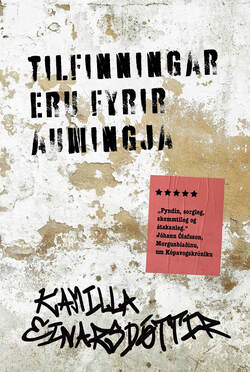 |


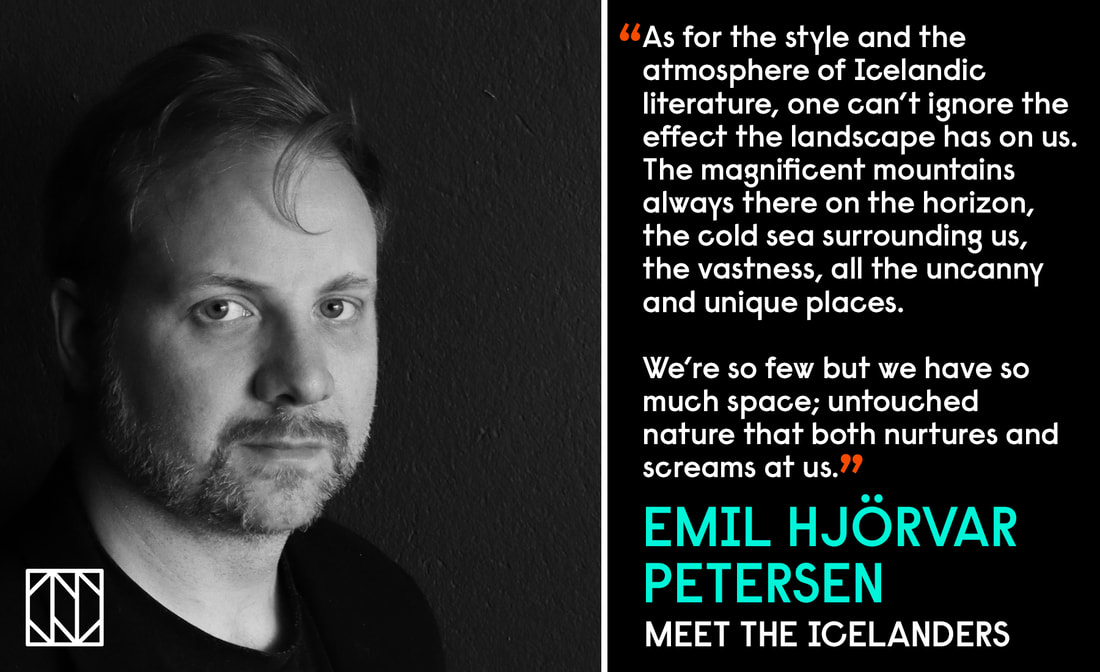
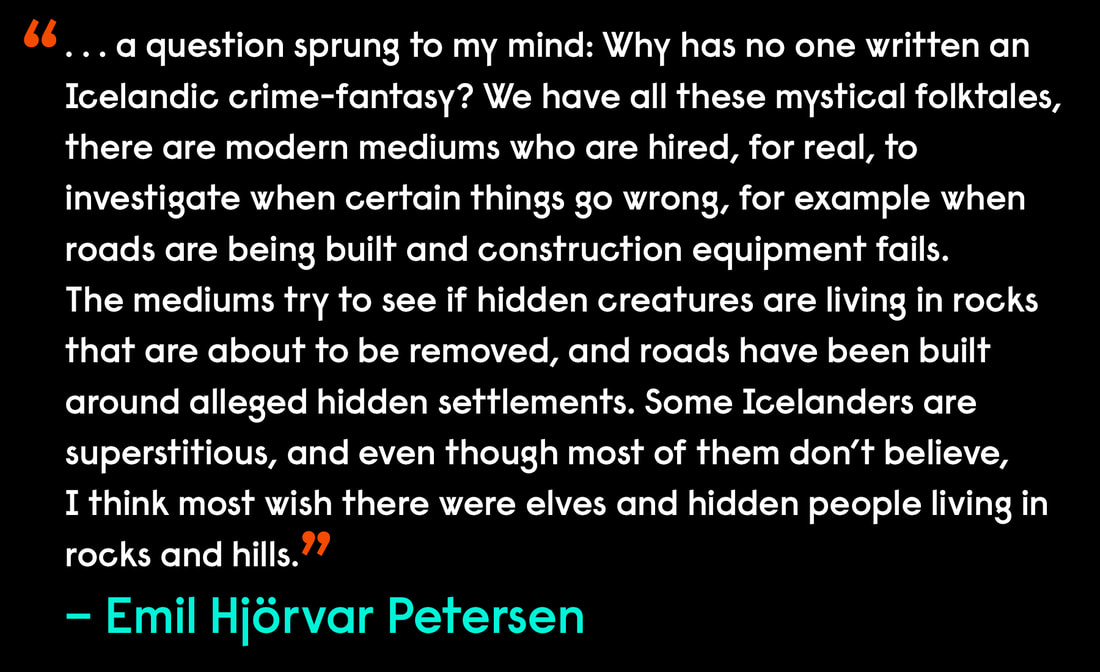
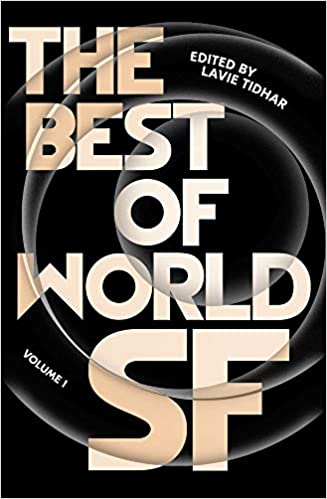
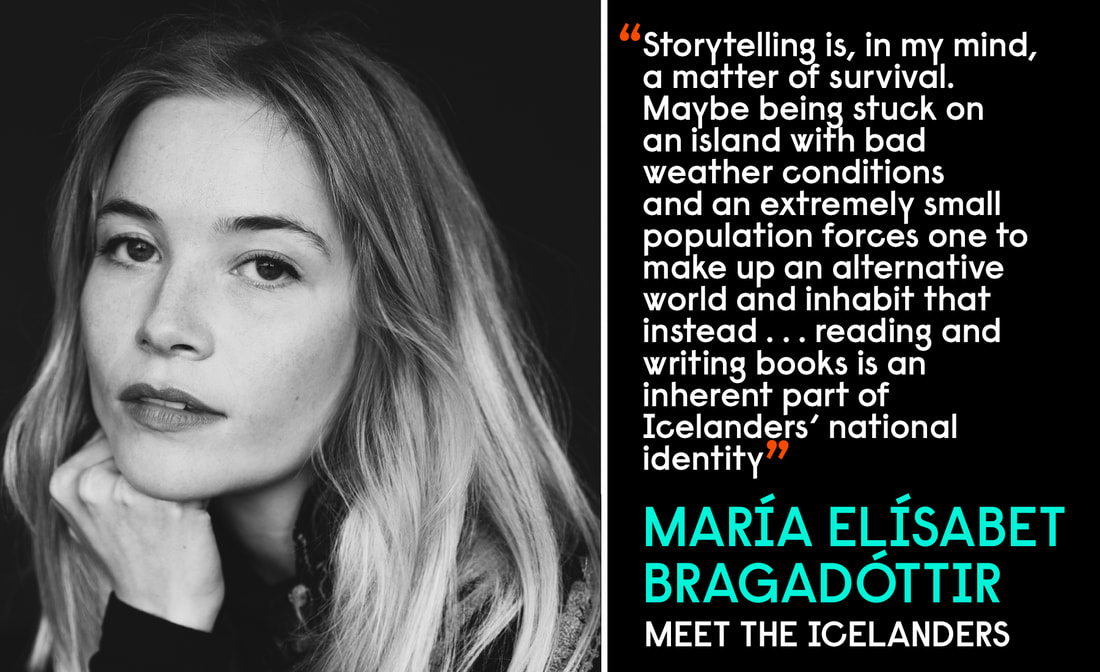
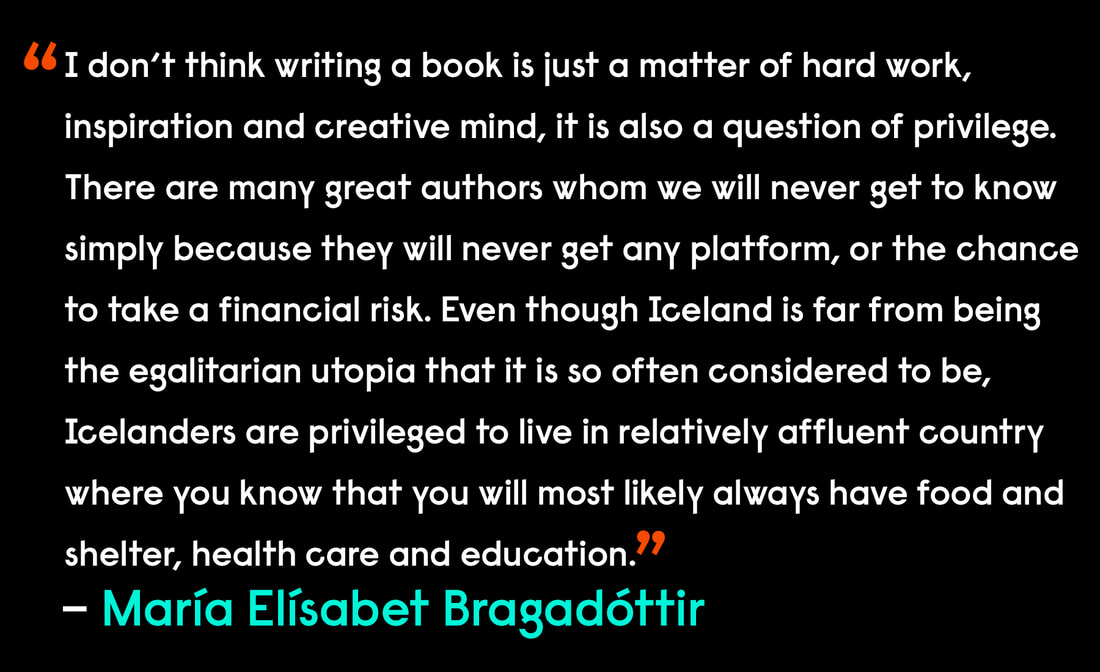
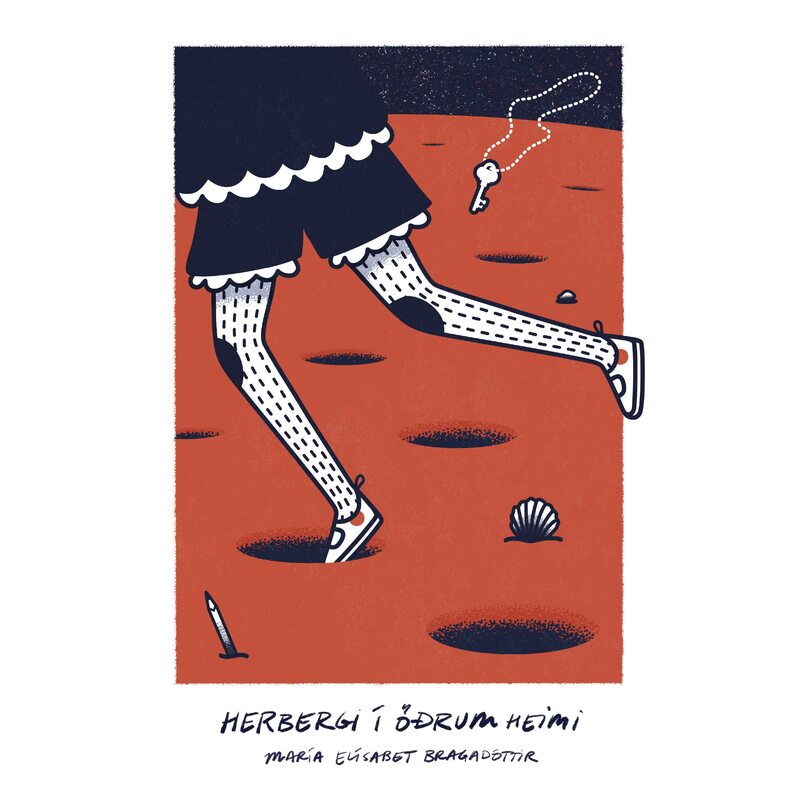
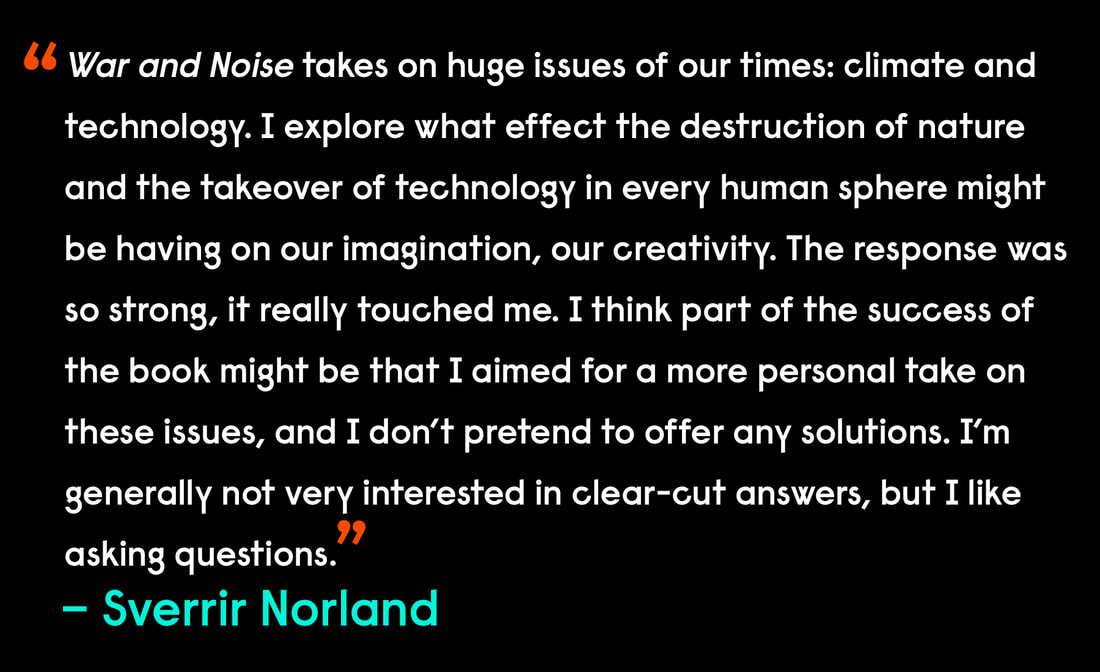
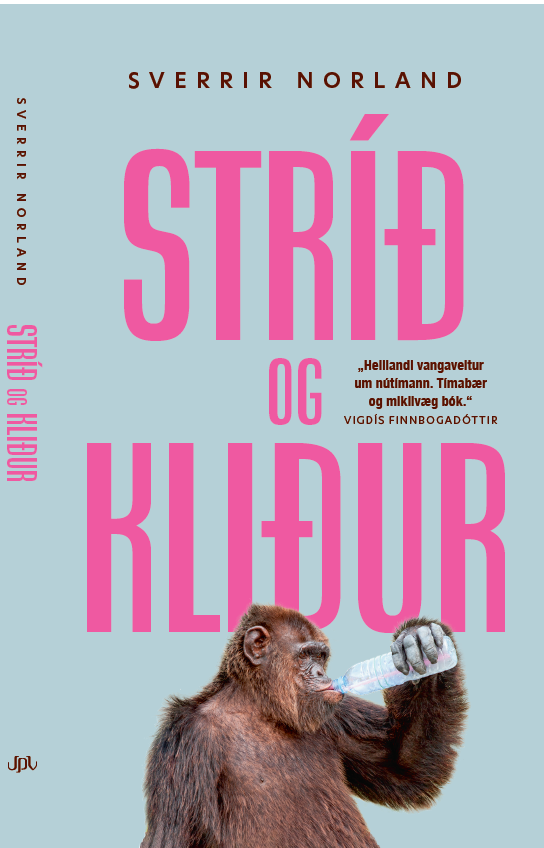
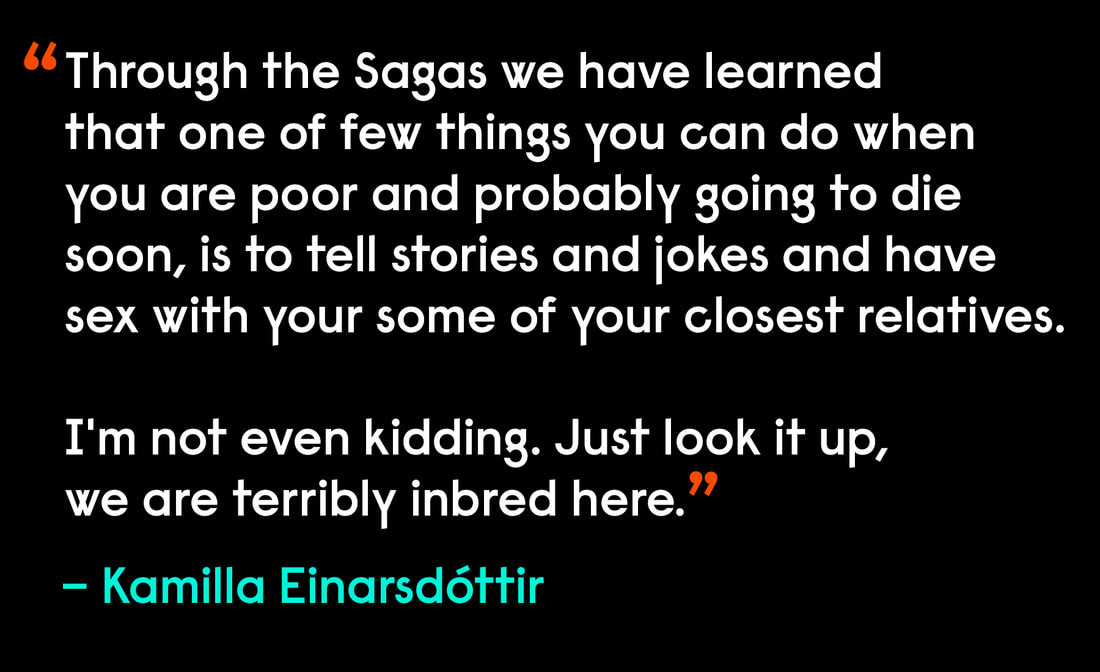
 RSS Feed
RSS Feed
